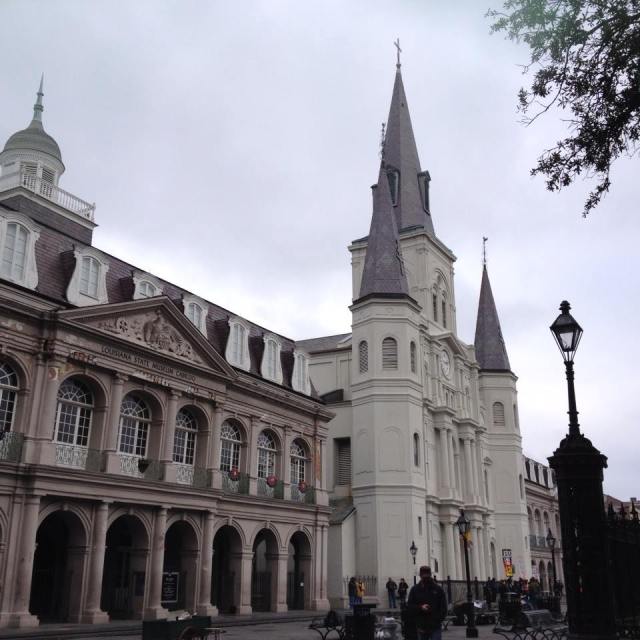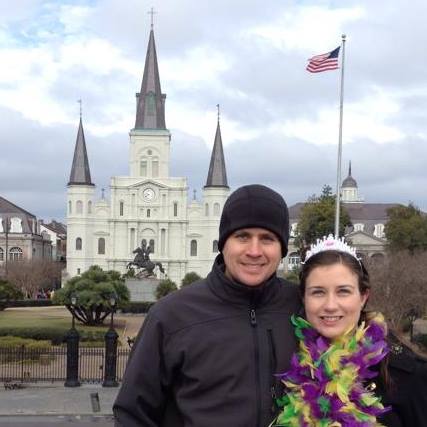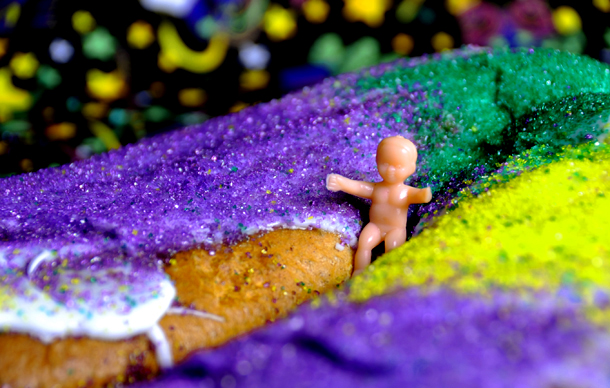
I’ve lived all my life in the New Orleans metropolitan area. From the time I was just a little girl, I knew that I lived in a special place and felt blessed to be part of the unique cultural heritage that distinguished the city of New Orleans and southeast Louisiana. My ancestors arrived in 1718, the year the city was founded, and I have a strong French Catholic heritage that my family always celebrated and viewed as a source of pride.
As an adult, I began to learn more about my faith. I loved the exploring the rich, ancient history of the Church, journeying deeper into the sacraments, and discovering the rituals and traditions of the liturgical year. Suddenly my eyes were opened. Instantly I saw a connection between my hometown’s culture and traditions and the Church’s liturgical year. In fact, so much of the day to day life and rhythm of my beloved city was determined by the Church. There is a good reason for that. Louisiana was a French colony, and for the first part of its history, Catholicism was the only religion allowed to be practiced. Catholicism was the established faith of New Orleans, leading to the common practices of its citizens being firmly rooted in Catholic theology.

I truly believe we are one of the only places in the United States where an entire region adheres—consciously or unconsciously—to the Church’s liturgical year. Transplants observe it as they naturally adhere to the rhythm of a city they have come to love. A large number of people in New Orleans, Catholic and Protestant, attend Catholic schools and have embraced the Catholic culture despite what their personal religious practices might be. All of this leads to a thriving Catholic city.
Our Catholic tradition is most evident this time of year. Yesterday was the Epiphany, the celebration of the three wise men bringing gifts to baby Jesus. The Epiphany, or Twelfth Night, is a very significant day in the New Orleans calendar; it begins the Carnival season! Carnival is a season lasts from Epiphany through Mardi Gras day, ending on Ash Wednesday. It is a time to eat, drink, and be merry, to party, dress in costumes, and attend parades. Our parades are not like in the rest of the country. We have massive, elaborate floats with riders throwing beads, doubloons, stuffed animals, and many, many other fun things.

Our food is sacred here in southeast Louisiana. Food is the center of our gatherings, family life, and culture. We love a good feast. The beginning of Carnival season would not be complete without a signature food. So we have the king cake. The king cake is full of Catholic meaning. The name of the cake comes from the three kings who visited Jesus. The circular or oval shaped, cinnamon flavored cake is decorated with the three colors of Carnival: purple, green, and gold. These three colors represent the three wise men or Magi. Purple represents justice, green faith, and gold power. Inside the cake, a plastic baby is hidden, symbolizing Jesus. Just as the wise men found Jesus, we hope to find Jesus in the cake (at least kids do). Adults are a bit reluctant to get the baby, as it means you have to throw the next party!
Carnival is all about family for me. The tourism industry markets a whole different kind of carnival experience, one that is very different than what most natives embrace. I grew up attending parades with my entire family—parents, sisters, grandparents, aunts, uncles, cousins—and loved the parades that my relatives rode in. We watched the parades Uptown, and I never once witnessed anything vulgar or inappropriate. Most of what you see are family and friends out having a good time. We intend to raise our children with this same important tradition.

The partying, feasting, and craziness that come with Carnival are a perfect preparation for Lent. By the time Ash Wednesday arrives, you are actually eager to fast, rest, and have some quiet down time. The slowing down, the contemplation, and the temperance that characterize Lent are actually welcomed, not dreaded, after experiencing the high energy revelry of Mardi Gras. I knew this intuitively as a young child, because it was common practice in my culture. Thinking about it intellectually as an adult, I am all the more appreciative of the liturgical year of the Catholic church and the traditions of my hometown.
